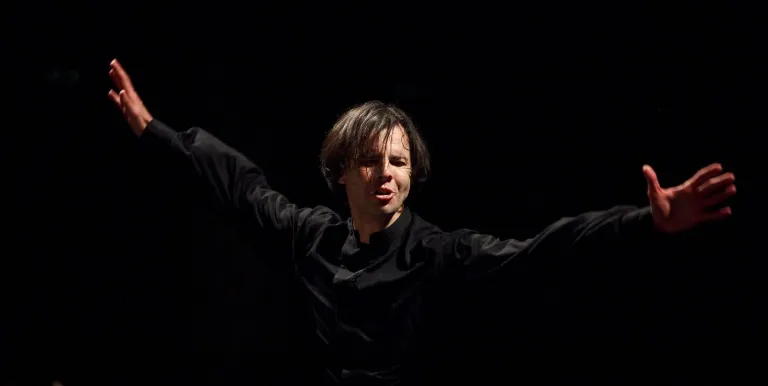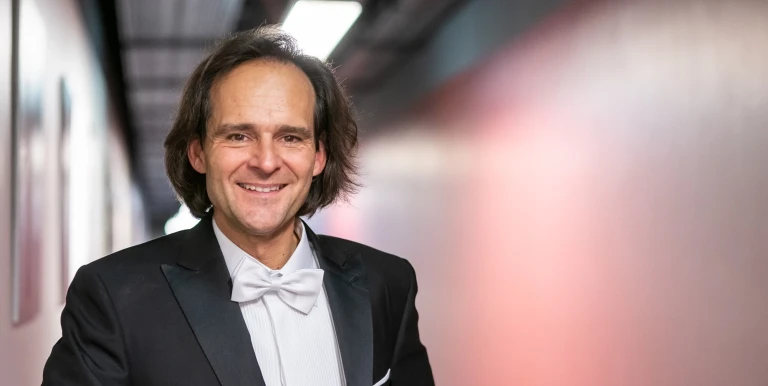one interval
Conductor:
Featuring:
Mahler
Des Knaben Wunderhorn
- Der Schildwache Nachtlied
- Rheinlegendchen
- Des Antonius zu Padua Fischpredigt
- Verlorne Müh‘
- Lied des Verfolgten im Turm
- Wer hat dies Liedel erdacht
- Wo die schönen Trompeten blasen
- Lob des hohen Verstandes
- Der Tamboursg'sell
- Das irdische Leben
- Revelge
Mahler
Symphony No. 4 in G major
A multi-faceted artist such as Teodor Currentzis, who is at once conductor, composer, instrumentalist and actor, is always exciting and attractive to the audience. Even more so when his life has followed an unusual path, from his birthplace of Athens, to the completion of his studies in Saint Petersburg, to the launch of his career in Siberia.
Born in 1972, Currentzis began his career at the head of the Novosibirsk Opera and Ballet Theatre, establishing a complex musical workshop where he initially created a symphony orchestra under the name musicAeterna of Perm Opera in 2004, quickly followed by a chorus of the same name. It was as music director of the latter that he took over as director of the opera house in the city of Perm in the Urals, while today he leads the orchestra of Southwest German Radio.
Currentzis has remained faithful to the musical ensembles he founded, however, continuing to work regularly as head of musicAeterna of Perm Opera, which has toured extensively in Russia and Western Europe, appeared as a guest at international festivals, and made successful recordings of masterpieces of the symphonic repertoire and operas alike. In terms of style, the ensemble is omnivorous, performing a wide variety of music from Baroque works to commissioned contemporary pieces. The programme for this concert at Müpa Budapest is more homogeneous, featuring two masterpieces by Mahler from the early creative period of his career representative of the so-called Wunderhorn Romanticism. At this time, Mahler's imagination was vividly inspired by Des Knaben Wunderhorn (The Boys' Magic Horn), the renowned collection of folk poems published by Clemens Brentano and Achim von Arnim from 1805 to 1808, from which the song cycle and closing solo soprano movement of the Symphony No. 4 to be heard at this concert were drawn.
Presented by: Müpa Budapest
-
We wish to inform you that in the event that Müpa Budapest's underground garage and outdoor car park are operating at full capacity, it is advisable to plan for increased waiting times when you arrive. In order to avoid this, we recommend that you depart for our events in time, so that you you can find the ideal parking spot quickly and smoothly and arrive for our performance in comfort. The Müpa Budapest underground garage gates will be operated by an automatic number plate recognition system. Parking is free of charge for visitors with tickets to any of our paid performances on that given day. The detailed parking policy of Müpa Budapest is available here.












